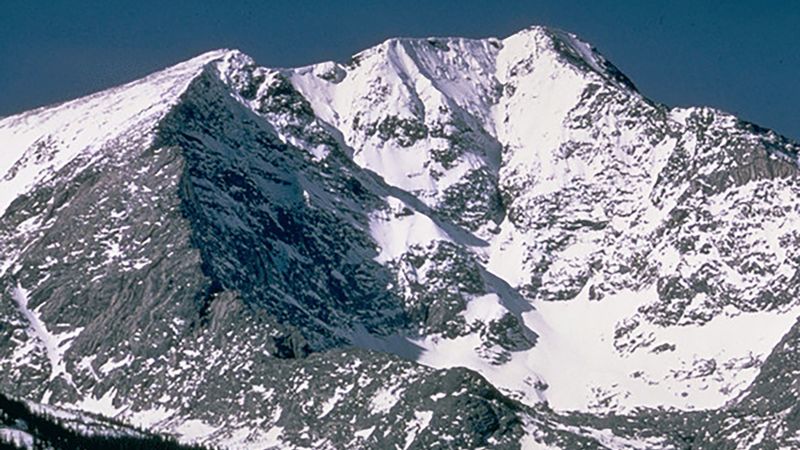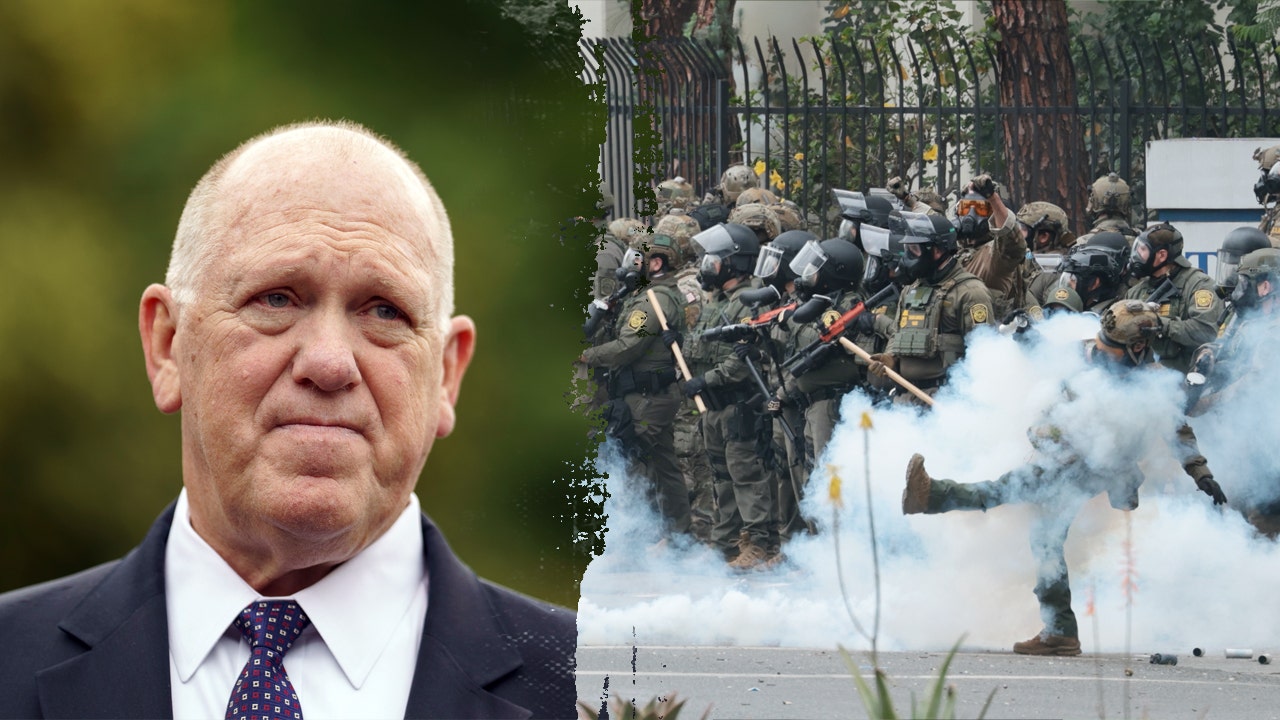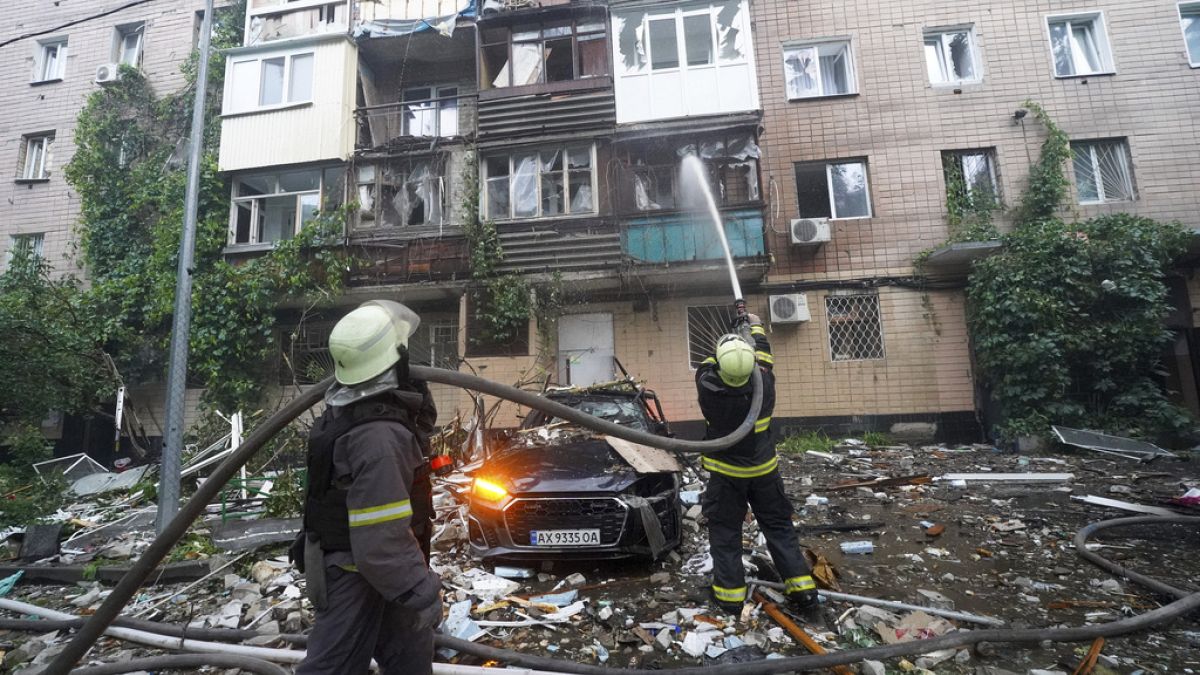This combo of images released by the Arkansas Department of Corrections shows the recapture of escaped inmate Grant Hardin, an ex-police chief and convicted killer, by Arkansas law enforcement officers and the U.S. Border Patrol on Friday, near Moccasin Creek in Izard County, about 1.5 miles northwest of Calico Rock prison.
Arkansas Department of Corrections/AP
hide caption
toggle caption
Arkansas Department of Corrections/AP
A former police chief and convicted killer known as the “Devil in the Ozarks” was captured by law enforcement 1.5 miles northwest of the prison he escaped from following a massive, nearly two-week-long manhunt in the rugged mountains of northern Arkansas, authorities announced Friday.
Grant Hardin, a former police chief in the small town of Gateway near the Arkansas-Missouri border, was serving lengthy sentences for murder and rape. Eventually, his notoriety led to a TV documentary, “Devil in the Ozarks.”
Hardin briefly attempted to run from officers when he saw them approach Friday afternoon, but he was quickly tackled to the ground, said Rand Champion, a spokesperson for the Arkansas prison system.
“He’d been on the run for a week and a half and probably didn’t have any energy left in him,” he added.
Hardin’s identity was confirmed through fingerprinting, the Izard County Sheriff’s Office said in a Facebook post.
There’s no indication that Hardin was injured, though he will be checked for dehydration and other medical problems.
Now, investigators are “chomping at the bit and really ready to talk to him,” said Champion, who used his cellphone to capture an image of Hardin being led away by officers. Hardin said nothing during those moments.
The escape, search and eventual capture
Hardin had been held at the Calico Rock prison since 2017 after pleading guilty to first-degree murder in a fatal shooting. In order to escape, he impersonated a corrections officer “in dress and manner,” according to a court document. A prison officer in one of the guard towers opened a secure gate, allowing him to walk out of the facility.
Champion said that someone should have checked Hardin’s identity before he was allowed to leave, describing the lack of verification as a “lapse” that’s being investigated.
Searchers had been using bloodhounds, officers on horseback, drones and helicopters in their hunt for Hardin since he escaped on May 25.
Shortly after the escape, a bloodhound found — then quickly lost — Hardin’s scent when heavy rains blew through the area, Champion said. The bloodhound tracked Hardin’s path for less than a quarter of a mile, after which could have gone in any direction.
“That was one of the most frustrating things, that they were able to track him but then they lost him because of the rain,” Champion said.
An elite and highly trained U.S. Border Patrol team had recently joined the search, federal authorities announced this week. The Border Patrol Tactical Team provided “advanced search capabilities and operational support,” U.S. Customs and Border Protection said.
Its members are experienced in navigating complex terrain, the agency said earlier this week. The team tracked Hardin through the region known for its rocky and rugged landscape, thick forests and an extensive cave network.
U.S. Customs and Border Patrol shared photos on Facebook of Hardin shirtless and covered in mud, laying face down with his hands tied behind his back on Friday. The post said that Hardin was “turned over to Arkansas State Police unharmed” by the federal agency.
A spokesperson for the agency didn’t respond to a phone call and emailed request for comment regarding the post on Friday night.
Hardin’s criminal convictions
Hardin pleaded guilty in 2017 to first-degree murder for the killing of James Appleton, 59. Appleton worked for the Gateway water department when he was shot in the head Feb. 23, 2017, near Garfield. Police found Appleton’s body inside a car. Hardin was sentenced to 30 years in prison.
Hardin’s DNA was also matched to the 1997 rape of a teacher at an elementary school in Rogers, north of Fayetteville. He was sentenced to 50 years for that crime.
Cheryl Tillman, Appleton’s sister, was with her mother and sister at a flea market in Ozark, Missouri, when law enforcement called to tell her Hardin had been captured. Tillman is also the mayor of Gateway, the 450-person town where Hardin was briefly police chief.
Tillman told The Associated Press that Hardin’s capture was a “big sigh of relief” for her whole family.
“We don’t have to walk around, turning around all the time, thinking somebody’s on our back,” Tillman said, emphasizing her appreciation for the officers who helped capture Hardin.
A problematic past in law enforcement
Though Hardin was police chief in Gateway for just four months, he had served as an officer in multiple communities around northwest Arkansas, his police records show.
In his first job as a police officer 35 years ago in Fayetteville, Hardin struggled almost immediately, his supervisors said. He was dismissed by Fayetteville police, but kept getting hired for other law enforcement jobs in northwest Arkansas over the years.
Hardin worked about six months at the Huntsville Police Department before resigning, but records do not give a reason for his resignation.
He later worked at the Eureka Springs Police Department from 1993 to 1996. Former Chief Earl Hyatt said Hardin resigned because Hyatt was going to fire him over incidents that included the use of excessive force.
“He did not need to be a police officer at all,” Hyatt told television station KNWA.
By the time he was the police chief in Gateway in 2016, “he was out chasing cars for no reason,” Tillman recalled in the documentary “Devil in the Ozarks.”


































